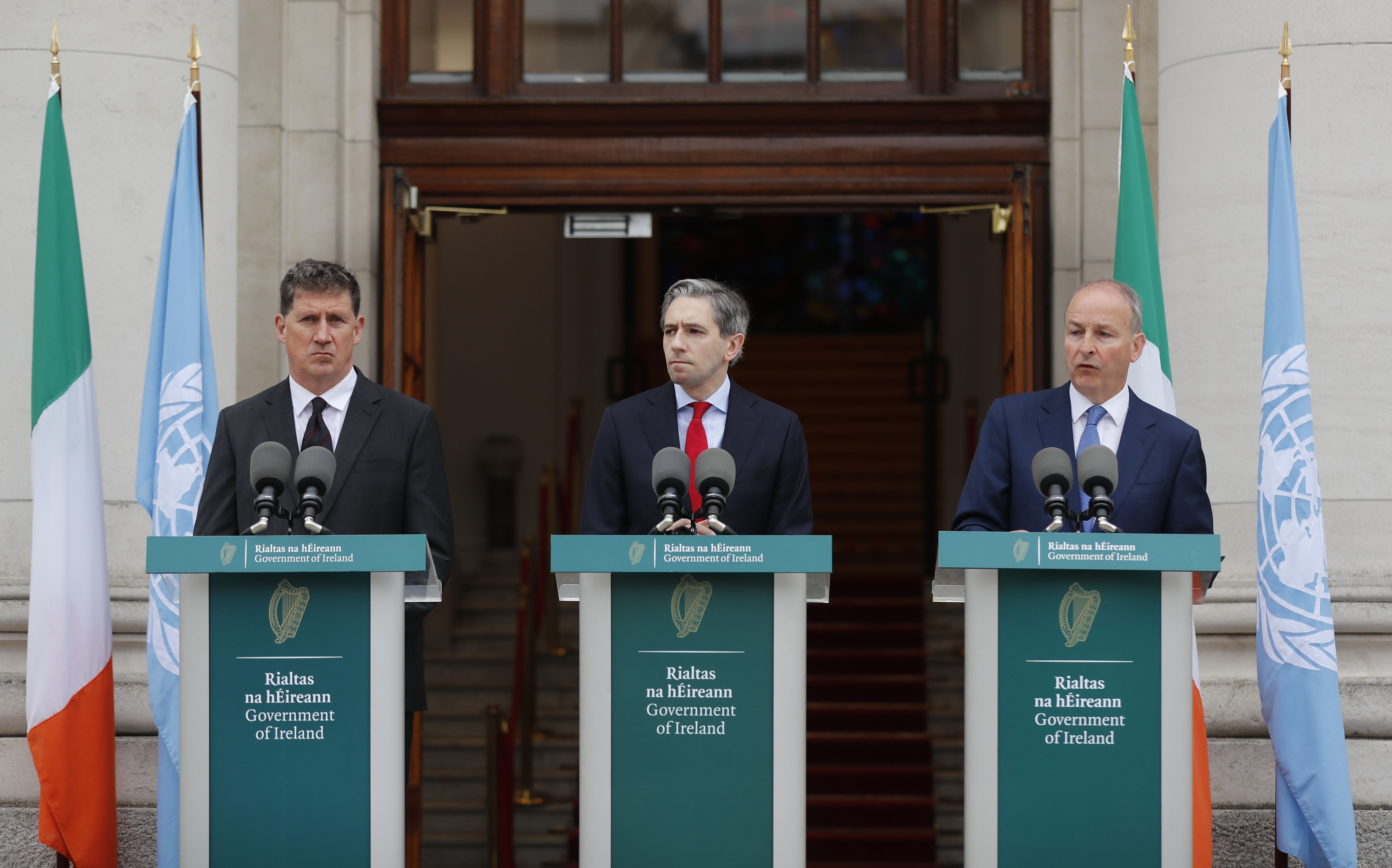The EU may be notoriously divided when it comes to the Middle East, but at times those divisions are a blessing. For example, this week Ireland, Spain and non-EU Norway took a step, in a coordinated fashion, of recognizing Palestinian statehood. In the absence of a unified EU position on the matter, moving forward on the level of the individual member states is, perhaps, the only viable way to advance towards the issue. However, beyond the symbolism, it’s unclear what impact the move will have.
The first EU member state to recognize Palestine was Sweden in 2014. Cyprus, Malta, and a few Central European nations recognized Palestine prior to joining the EU.
In a statement on May 22 explaining the move, Norwegian Prime Minister Jonas Gahr Store said that “there can be no peace in the Middle East if there is no recognition.” He also made it clear that “the terror was committed by Hamas and militant groups who are not supporters of a two-state solution.” His Spanish counterpart Pedro Sanchez announced the his country’s Council of Ministers will recognize Palestine on May 28, “echoing the will of the majority of the Spanish people”.
Israel, predictably, reacted harshly by recalling ambassadors from Ireland and Norway and threatening to do the same with Spain if it moved ahead with a formal recognition in few days. Foreign Minister Israel Katz lashed out at the European trio by saying that their move sends a message that “terrorism pays” and “rewards Hamas and Iran” in the light of Hamas’ gruesome attack on Israel on October 7, 2023.
By contrast, the move was widely welcomed in the Middle East, with such close partners of the EU as Turkey , Qatar and Jordan, as well as, obviously, Palestinian officials in the West Bank, issuing strongly supportive statements. Of particular note is the statement by Saudi Arabia, in which the Kingdom calls on more countries to “swiftly take the same stance, which would contribute to finding a reliable and irreversible path to achieve a just and lasting peace that fulfills the rights of the Palestinian people.” Riyadh has used another occasion to say that a credible path to a Palestinian statehood is not negotiable even as it pursues a normalization deal with Israel, under the U.S. auspices.
Not all of the EU members are yet on board, though. Hugh Lovatt from the European Center for Foreign Relations says countries like France, Germany, Italy and non-EU United Kingdom are unlikely to follow suit because they say such a move would undermine the Oslo process. Lovatt, however, believes, that “conditioning the Palestinian right to self-determination on a fatally flawed political process has always been the wrong approach – but it is even more so today in the absence of any realistic prospect for successful negotiations.”
The recognition of Palestine by Ireland, Norway, and Spain comes just few days after the International Criminal Court prosecutor’s application for arrest warrants against leaders of Israel and Hamas. European reactions, again, reveal the familiar pattern of divisions along the predictable lines: Belgium, Slovenia, Ireland and Spain, all strong supporters of the two-state solution, pledged full support for the Court and emphasized that those responsible for the crimes committed in Israel and Palestine from at least October 7, 2023 must be prosecuted. The EU high representative for foreign policy Josep Borrell, along the same lines, stated that “all states that have ratified the ICC statutes are bound to execute the Court’s decisions.” Notably, all EU members are parties to the Rome Statute that established the ICC.
At the opposite side of the spectrum are the usual suspects — Israel’s closest allies in the EU. With varying degrees of vehemence, Czech Republic, Hungary, Italy and Austria denounced the fact that the ICC issued an arrest warrant for representatives of a democracy like Israel and a terrorist organization like Hamas.
Somewhere in the middle stand the EU heavyweights: Germany criticized the “incorrect implication of equivalence” between Israel and Hamas in the ICC application, while expressing its general support for the Court. France equally rejected any equivalence but stressed “respect for the independence of the international justice.”
While the unilateral recognition of the Palestinian statehood is largely a symbolic move, coupled with the ICC action, backed by a number of Israel’s allies in the EU, it signals a serious erosion of Israel’s standing in the West. More countries may choose to follow suit in the near future — Belgium and Slovenia being tipped as the prime candidates. Even French President Emmanuel Macron no longer discards such a step.
Such moves may clash with the United States, but they reveal the growing frustration in Europe about the futility of sticking to the formula of a negotiated solution that seems increasingly out of reach given the shift in Israel towards more intransigent positions.
At the same time, European countries like Spain, Ireland, Norway and possibly more to follow no longer wish to pay a diplomatic price in their relations with the Arab and Muslim world and, in fact, much of the Global South, by refusing to support international law and human rights. Judging by the reactions from the Middle East (except Israel) their recognition of Palestine was a correct bet.

















